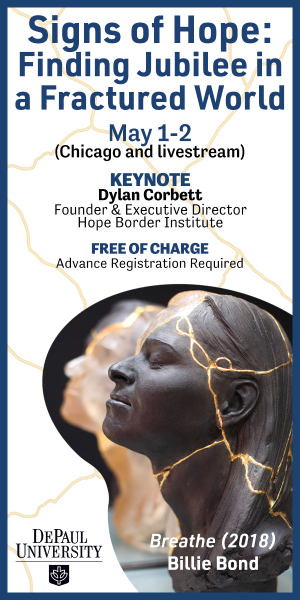Catholic News Service has begun a series on the new Mass translations coming November 27 to a parish near you. Today's story offers a bit of wishful thinking on how terms like "consubstantial" (in the creed) will be received by the under-20 set. (Catechists are hoping they will love it.)
Catechetical hopes aside, the biggest problem here is people making stuff up, as has been the case all along with the justification for the new translations. First we had the claim that "And with your spirit" has some theological content beyond "And also with you," in that it addresses the Holy Spirit in the priest given at ordination–an allegorical interpretation of the liturgy based on a single reference from St. John Chrysostom. It is a particularly strange one, too, since ordination doesn't confer a new helping the Holy Spirit on a priest–he gets the same fullness of the Spirit we all get in our Christian initiation. The greeting is just that: a greeting, and there's no need to make it anything more.
Then we have "consubstantial," which replaces "one in being" in the Nicene Creed. Cue the Pennsylvania pastor with made-up reason: ""consubstantial [reflects the] language of theology, the language the ancient church fathers carefully constructed to take a stab at the mystery of Christ's divinity. 'One in being' uses slightly more Anglo-Saxon words. It demystifies the theological language." He goes on to say that the purpose of the new translation is to "re-mystify" the liturgy, "in the best sense of the word"–leaving me to wonder what the best sense of "re-mystify" could possibly be.
Slightly more Anglo-Saxon words? Actually, "one in being" far more accurately reflects the theological Greek of the ancient church fathers, who said that Jesus Christ is "homoousios" with the Father: "homo" meaning "one'"; "ousios" meaning "being" in slightly Anglo Saxon language.
No, the reason we are using "consubstantial" is that it is the English word that sounds most like "consubstantialem" in English, the Latin translation of the Greek Nicene Creed being more important than actually communicating the meaning of the Greek in slightly Anglo-Saxon words.
Thing is, this is not the poor pastor's fault: He's trying to make sense of something that doesn't really make any sense, at least not from the perspective of good translation or good liturgy. And he's only repeating the same nonsense that the translation's cheerleaders are expounding, little of which passes the smell test on liturgical and historical grounds, more spin that substance. And there's plenty more coming.
Related: Incoming Missal: Changes to Sunday Mass
Learn your lines: How parishes are preparing for the new translations








